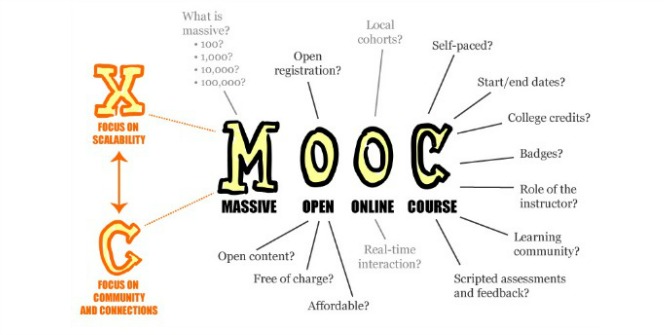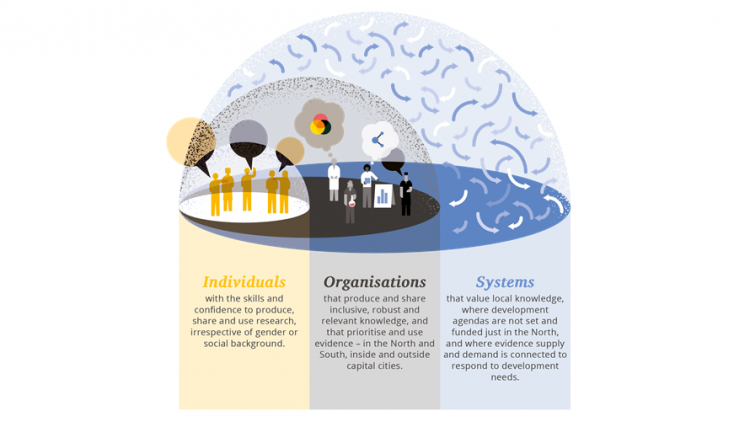 Pat Thomson suggests the benefits of restoring a writing-oriented organisational culture to the modern-day university. A more social, communal setting can create the conditions necessary for gaining confidence as a writer. Writing is core to our disciplines and so ought to be at the very heart of our everyday university lives. While this would certainly require institutional leadership, it also depends on the initiative and choices of communities of scholars.
Pat Thomson suggests the benefits of restoring a writing-oriented organisational culture to the modern-day university. A more social, communal setting can create the conditions necessary for gaining confidence as a writer. Writing is core to our disciplines and so ought to be at the very heart of our everyday university lives. While this would certainly require institutional leadership, it also depends on the initiative and choices of communities of scholars.
What goes on in a university? What would the brother from another planet think if they came to visit one today? They’d see teaching in term time. There’d be some visible signs of research, particularly in labs. But walking around today’s campuses could well suggest that what we academics do is attend meetings, meetings and more meetings.
Universities are big places, rambling and shambling, often developed over a very long time; buildings are usually put up as needed, rather than planned ahead. Despite any external architectural innovation, most of our buildings have teaching rooms and long corridors of closed doors. Behind each door is a solitary scholar beavering away – unless of course they are in a meeting. (I’m ignoring those open-space, call centre-style offices latterly popular with university managers.)
Our closed-door universities originally developed out of, and in parallel with, religious practices. The first Western universities were very often established by the church, and the shift from monastic cell to academic office isn’t hard to see. But very few of the religious precursors of the modern university were grounded solely in practices of individual and isolated meditations and profound silences. Those precious illuminated manuscripts now resplendent in our archives were generally produced in very social settings. And even if the cell was the site of production rather than a shared (and supervised) workroom, all of the artists knew that they were contributing to a worthy common endeavour.
 Image credit: Typewriter at this awwwweome stationary shop at Brunswick by Pauline Mak. This work is licensed under a CC BY 2.0 license.
Image credit: Typewriter at this awwwweome stationary shop at Brunswick by Pauline Mak. This work is licensed under a CC BY 2.0 license.
These days most of us do our writing at home. The collective endeavour we contribute to is our discipline, and knowledge more generally. But this knowledge production is now governed by various kinds of audits rather than an immediate steely supervisory eye. It’s not how much of the page did we cover before nightfall, but rather – how many of this and that did we produce this year? How does what we did this auditing period fit into the prevailing excellence/quality framework and rubric? Are these publications the right ones? Are they/we good enough?
What gets lost in this kind of individualised and competitive environment, I wonder….?
When asked about his writing practices, the linguist-turned-multimodal-design scholar Gunther Kress said:
“I couldn’t think of writing separately from a whole much wider social environment. So what helped me in writing was moving through a place, specifically the University of East Anglia, a long time ago, where other people were writing, so it was a normal thing to do, it wasn’t unusual…But then, specifically, having friends and colleagues with whom I was working who had confidence in the kinds of things I was thinking, and therefore having the confidence to put those things, which otherwise had been private and unusual and maybe strange and certainly not to be paraded in public, putting them down on paper as in publishing. It’s that, it was about confidence in the community that allowed me then the confidence that people get from feedback, from people who I thought much of, who were friends and colleagues. That allowed me to take bearings… It was that really. So it’s not writing as a mechanical or separate or decontextualised task or process.” (Carnell et al., 2008 pp 130-131)
Kress suggests that working in a writing-oriented organisational culture was a crucial prior condition for his writing. He stresses the role of others in creating the conditions necessary for gaining confidence as a writer. He echoes, perhaps, a scholarly/religious order which was social and communally supportive; the ethos was of shared commitment and mutual endeavour.
There’s still a role for collective others in our individual and collaborative writing…but. And it’s a big but. But. An organisational culture supportive of writing can’t be built through audit alone. A transactional performance reward policy – do this and you get this – works for some people but not everyone. And, while online communities dedicated to writing can be wonderful, they aren’t really a substitute for the kind of shared institutional environment that Kress describes.
What’s more, a writing culture can’t be sidelined, left as the sole responsibility of a development unit dedicated to training and professional development. Writing is core to our disciplines and therefore surely ought to be at the very heart of our everyday university lives. Developing supportive writing cultures certainly requires leadership, but it also depends on the agency, initiative, choice and buy-in of communities of scholars. So we too have a part to play in (re) building a writing oriented scholarly culture for today. Not a monastic scriptorium, but something different….
Some universities are much better at building writing cultures than others, and perhaps we need to know more about what they do. And yes, the ways in which workload is managed and staff employed and contracted are certainly part of the bigger picture of institutional writing support.
I’d like to think we can develop a shared view of what can still happen in audit-driven environments. Could we, online, document interesting institutional practices we can take back to our own institutions?
What does your department or school or faculty do to create a social and supportive writing culture? What could other more emaciated writing cultures learn from you?
This blog post originally appeared on the author’s personal blog, patter, and is published under a CC BY-NC-SA 3.0 license.
Note: This article gives the views of the author, and not the position of the LSE Impact Blog, nor of the London School of Economics. Please review our comments policy if you have any concerns on posting a comment below.
About the author
Pat Thomson is Professor of Education at the University of Nottingham. Her current research focuses on creativity, the arts and change in schools and communities, and postgraduate writing pedagogies. She is currently devoting more time to exploring, reading and thinking about imaginative and inclusive pedagogies which sit at the heart of change. She blogs about her research at patter.







